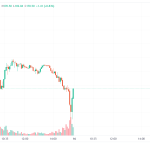Futures exchanges have a rich history of facilitating trade and adapting to market changes. provide critical infrastructure for trading
Role of Futures Exchanges
- Facilitating Trades:
Contracts: Exchanges offer standardized futures contracts that specify the quantity and quality of the asset being traded, the price, and the delivery date. These contracts ensure that both parties involved in the trade have a clear and mutual understanding of their obligations.
Trading Facilities: Exchanges provide both physical locations, like trading pits (where traders traditionally met face-to-face), and electronic platforms (where trades are executed via computers). These facilities help facilitate smooth and efficient trading.
- Market Integrity and Oversight:
Regulation: Exchanges operate under strict regulations enforced by federal authorities to ensure fair trading practices and market transparency. This oversight is critical in maintaining the integrity of the market, protecting traders, and ensuring that the trading environment remains orderly.
Financial Stability: Exchanges implement measures to safeguard the financial stability of the market. This includes maintaining clearinghouses that act as intermediaries between buyers and sellers, ensuring that trades are settled and that financial obligations are met.
- Level Playing Field:
Access and Transparency: Exchanges strive to provide equal access to all market participants, ensuring that no single trader or group of traders has an unfair advantage. Transparency in trading rules and contract specifications helps maintain a level playing field.
Trust and Reliability: The reliability of the futures market is crucial for traders. They must trust that they can access their profits when they choose to exit a position. The integrity of the marketplace ensures that participants' funds are secure and that they can confidently engage in trading.
Historical Context and Evolution
- Historical Roots:
Chicago Board of Trade (CBOT): Established in 1848, the CBOT initially focused on grain trading, providing a centralized marketplace for farmers and merchants. Over time, it evolved to include a broad range of financial products.
Chicago Mercantile Exchange (CME): Originally founded to trade agricultural commodities like eggs and butter, the CME has expanded to include financial instruments such as currencies, stock indexes, and interest rates.
New York Futures Exchanges: These exchanges also have a long history, tracing their origins to the 19th century, and have similarly evolved to cater to a wide range of financial products.
- Modernization and Innovation:
Evolving Products: As markets and financial needs have changed, futures exchanges have adapted by introducing new products. For example, the Chicago Mercantile Exchange now offers futures contracts on a variety of financial instruments, including currencies, stock indexes, and interest rates.
Sector-Specific Products: Exchanges recognize the needs of different industries and create specialized contracts to address those needs. For instance, the dairy industry faced significant price volatility, prompting the Chicago Mercantile Exchange to develop futures contracts that allow dairy producers and buyers to hedge against price fluctuations.
Example: Dairy Futures
- Risk Management:
Price Volatility: The dairy industry often experiences significant price swings due to factors like supply and demand imbalances, weather conditions, and changes in feed costs. This volatility can lead to financial instability for dairy producers and processors.
Hedging: To manage this risk, dairy producers and processors can use futures contracts to lock in prices for their products or raw materials. By doing so, they can protect themselves from adverse price movements and stabilize their financial outcomes.
- Market Participation:
Corporate Hedging: Major companies, such as Kraft Foods, utilize futures contracts to hedge against price risks in the dairy market. This allows them to secure stable input costs and manage their financial planning more effectively.
In summary, futures exchanges have a rich history of facilitating trade and adapting to market changes. They provide critical infrastructure for trading, enforce regulations to ensure market integrity, and continually innovate to meet the evolving needs of various industries. Through mechanisms like futures contracts, they help participants manage risks and stabilize their financial positions.
Leave a comment
Your email address will not be published. Required fields are marked *



